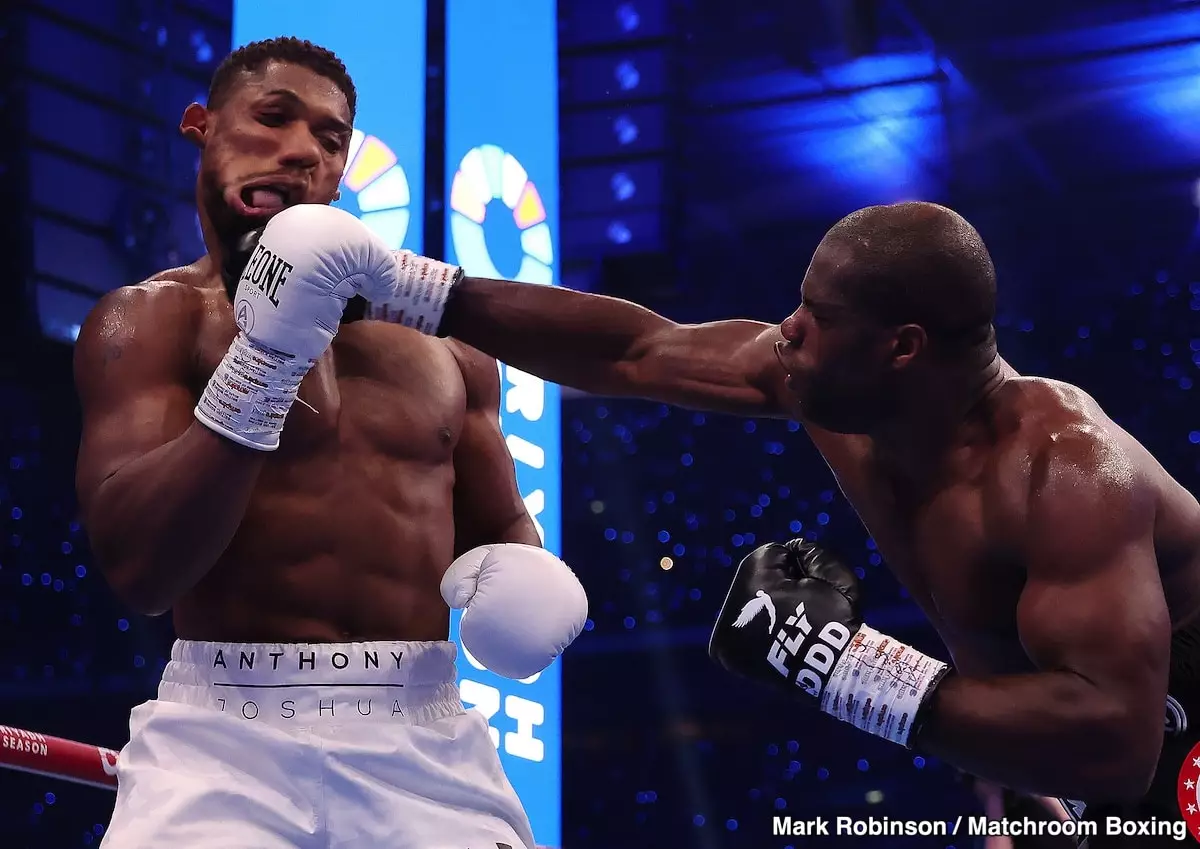BY BOXING HIT STAFF-
The boxing world has been electrified by the rivalry between Anthony Joshua and Deontay Wilder, two giants of the heavyweight division whose paths have been historically intertwined. Yet, as of late, the thunderous echoes of their punches seem to fade into the background, leaving fans pondering whether we have indeed witnessed the last hurrahs of these titans. The once-much-anticipated clash, initially projected for 2018 or 2019, seemed destined to become one of the sport’s monumental matchups. However, fate dictated otherwise, resulting in Joshua’s stumbling defeat against Andy Ruiz and Wilder’s dramatic dismantling by Tyson Fury in their second bout.
Both athletes recently faced harrowing stoppage losses—Wilder to Zhilei Zhang and Joshua to Daniel Dubois—raising alarming questions about their futures and overall careers. Such defeats bring to light the stark reality that both champions seem to be shadows of their former selves and have become subjects of retirement speculation. While Joshua appears eager to continue his quest for redemption, contemplating a possible rematch with Dubois, Wilder’s future remains cloaked in uncertainty, sparking widespread concern over whether he will step back into the ring again.
There is an undeniable sense of melancholy surrounding the careers of these once-unstoppable forces. Both Joshua and Wilder have amassed significant wealth, accolades, and memorable moments inside the square circle. Yet, given their recent setbacks, they wear the wounds of war visibly. Wilder’s recent fight showcased a version of “The Bronze Bomber” that seemed almost robotic, lacking the ferocity that once defined him. Meanwhile, Joshua found himself overwhelmed by Dubois, illustrating that even formidable athletes can falter under pressure.
The narrative shift around their careers elicits a mixture of sadness and intrigue. How can two athletes, once enshrined in heavy-hitting glory, navigate the treacherous waters of comebacks? Some experts posit that neither Joshua nor Wilder possesses the punch resistance necessary to dictate the terms of any future bout. A showdown between the two, should it happen, could only serve to reveal how far both have fallen—devolving the match into a dangerous game of who can land their remaining significant blow first.
The Tricky Balance of Passion and Health
Retiring from boxing is an emotionally charged topic, rife with conflicts of interest. For fighters like Joshua and Wilder, the challenge isn’t merely relinquishing the sport they love but also reconciling the lessons life has imparted through hardship. A common thread among athletes is the struggle to walk away gracefully, often driven by pride and the echoing applause that follows a hard-fought battle.
Both Joshua and Wilder have formidable support systems. Their trainers, family, and fans, all invested in their well-being, provide a complex backdrop to their future decisions. As rumors swirl about their respective retirements, it becomes evident that each fighter has a unique journey to navigate. Will Wilder’s camp, led by Malik Scott, manage to encourage him to step back from the ring? Alternatively, will Joshua’s burning desire to reclaim his lost glory lead him into potentially perilous waters, especially against an adversary like Dubois?
The notion of a Joshua versus Wilder bout now appears multifaceted. While the idea of this long-awaited clash continues to stir excitement within the fanbase, it also carries an air of trepidation. The tragic undertone of “car crash entertainment” looms heavily over the prospects of such an event. Would fans be inclined to gather around in anticipation of a heavyweight showdown that might result in a swift, unforeseen conclusion?
This scenario raises further complications, as the visibility of both fighters’ fading abilities might tarnish the memories of their once-mythical statuses. A fight between them could draw flocks of viewers out of morbid curiosity rather than genuine passion for the sport. As the fanfare diminishes, one must question: is the spectacle worth it if the fighters no longer possess the durability that once made them iconic? What ingredients led to their regressive states?
As time moves forward, the fates of Joshua and Wilder remain tethered to their embrace of, or detachment from, the ring. Both champions must navigate their personal journeys through past triumphs and present realities to determine the next chapter in their storied legacies. While fans remain hopeful for one last electrifying encounter, the truth remains—they have both been tempered in the fires of defeat. Only time will reveal whether these giants can rise again or if their illustrious journeys will ultimately fizzle out in the annals of boxing history. The heaviness of expectation lingers in the air; each punch they throw may carry with it the weight of their careers.


Leave a Reply